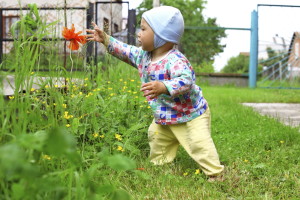The notion of embodiment refers to the assumption that thoughts, feelings, and reactions that are grounded in sensory experiences and bodily states. By extension, mental processes involve simulations of physical actions and perceptions. For example, early childhood experiences moving about in the physical environment are believed to structure later understanding and representation of abstract concepts such as status, power, time, etc. 
Such notions tend to redress the position of movement professionals as a cognitive minority. As I noted in an earlier blog, we believe that movement is meaningful and may be studied in all its dynamic variations, yielding valuable insights into human behavior. Taking embodiment seriously has been a deviant position, but this is changing as embodied cognition gains traction as a theory.
Indeed, the search is on for experimental evidence to support the embodied nature of cognition. Various relationships between bodily experiences and abstract concepts are being studied. In particular, relationships pointed out in the ground-breaking work by Lakoff and Johnson, are being tested, such as the correlation of weight with importance, verticality with power and status, and warmth with emotional closeness. Interestingly, Rudolf Laban was there first. But that is the subject for another blog, and the upcoming MoveScape seminar.
